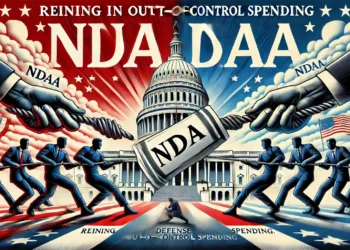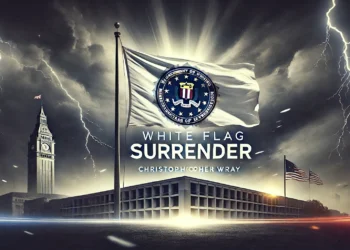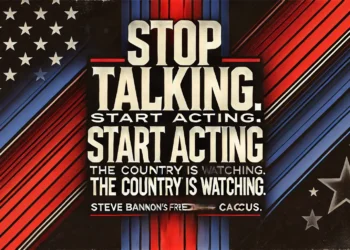In her recent article “The Silent Insurrection: General Milley’s Hand on January 6,” for Declassified with Julie Kelly, author Haley McLean examines the actions and influence of General Mark Milley under President Donald J. Trump, then-Chairman of the Joint Chiefs of Staff, leading up to and during the events of January 6, 2021.
“Take some time this weekend to dive into this detailed piece by @ms_haleyjane on Milley’s dirty fingerprints all over Jan 6. Why was he talking to Susan Rice before Jan 6? Why did he and Army Sec Ryan McCarthy make last minute changes to chain of command for deployment of National Guard a few days before Jan 6? Why was McCarthy MIA the entire afternoon? High ranking National Guard officials recently disclosed new details of the delayed authorization for troops to the Capitol to@RepLoudermilk committee,” Julie Kelly wrote on X., adding:
“During congressional testimony, Col. Earl Matthews, legal counsel for DC National Guard, noted Milley’s alleged fears of a “Reichstag moment” after the election. Milley helped sow fears Trump might use the military to remain in power.” LINK
“According to top Natl Guard officials, McCarthy did not give the final ok until after 5pm on Jan 6. And why was McCarthy at DC police HQ instead of Capitol police? And why was he preparing remarks for a presser with Muriel Bowser instead of securing the Capitol?” LINK
McLean highlights Milley’s close alignment with Democratic leaders and his role in shaping the military’s cautious response to the Capitol riot.
McLean reports that Milley, driven by fears of President Trump potentially misusing military power, frequently engaged with prominent Democrats such as Nancy Pelosi, Chuck Schumer, Susan Rice, and Robert Gates. Milley expressed concerns about a possible “Reichstag moment,” a scenario where Trump might exploit the chaos to seize more power. Colonel Earl Matthews testified about an “irrational” fear among senior military officers, allegedly influenced by Milley’s disparaging remarks about Trump.
Despite Milley’s claims of maintaining neutrality, McLean suggests that his actions were politically motivated. Milley’s own words, as cited from Carol Leonnig and Philip Rucker’s “I Alone Can Fix It,” reveal his defiant stance against Trump, stating, “I’ll just fight him” and his willingness to face severe consequences: “If they want to court-martial me or put me in prison, have at it.”
McLean details the restricted role of the D.C. National Guard on January 6, shaped by a memorandum drafted by Milley and Army Secretary Ryan McCarthy. This memo limited the Guard’s actions and required explicit approval from McCarthy for deployment, contributing to the delayed response. McLean raises questions about McCarthy’s unavailability and the breakdown in communication on the day of the riot.
The article also examines the January 6 Committee’s investigation, noting its focus on President Trump and its apparent leniency towards Milley and McCarthy’s roles. The committee acknowledged the delay in deploying the National Guard as “unnecessary and unacceptable.” Still, it attributed it to “military processes, institutional caution, and a revised deployment approval process” by Milley and McCarthy.
McLean concludes by questioning Milley’s actions and motivations, suggesting that his political biases may have influenced his decisions, potentially undermining Trump’s authority and exacerbating the chaos on January 6.
Read the full article at Julie Kelly’s site.





This makes the case that the J 6 Defendants were Entrapped https://cha.house.gov/2024/3/chairman-loudermilk-publishes-never-before-released-anthony-ornato-transcribed-interview